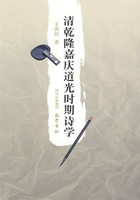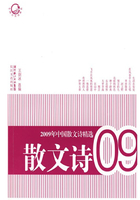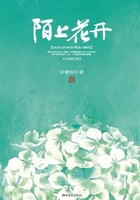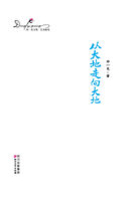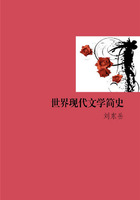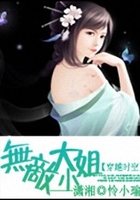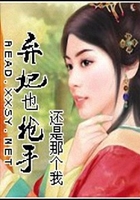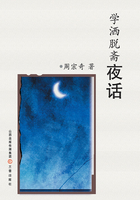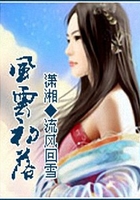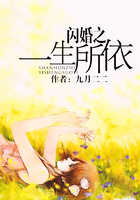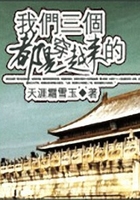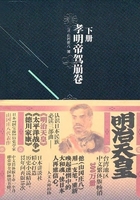1.2 作者人生
1.2 The writer’s Life
众所周知,《红楼梦》的作者是曹雪芹(1715—1763),名沾,字梦阮,号雪芹、芹圃、芹溪。他出生在南京,祖籍在今天的东北辽阳市。他的祖先,尽管是汉族人,但后来被接纳入满族右白旗。接连三代,六十多年,他的祖父辈均任江宁(今天的南京)织造。他的曾祖母孙氏是康熙皇帝幼年时期的保姆,其祖父曹寅是康熙皇帝的陪读和近身侍卫。康熙皇帝六下江南巡视,有四次就是曹寅陪着照顾,独享殊荣。在曹寅死后,曹家在曹雪芹父亲曹俯的统领下继续享受着康熙皇帝的恩宠。但当雍正皇帝当政时,曹俯因被指控财经亏空和驿站管理失误而遭革职,家庭财产被没收。曹家从此结束了平静幸福的日子。他们必须从南京搬家到北京。曹雪芹原本过着娇养奢侈的生活长大。由于贫困缠身,他最终迁居到京西郊外乡下的茅舍里。茅舍只有盖席陋窗,绳床瓦灶。他家有时穷得吃不起饭,只有喝粥。1762年他年幼儿子的过早去世给了曹雪芹致命的打击。从此他就一病不起,没钱买好药治疗,他本人也于1763年2月12日与世长辞了,享年48岁。
It"s well known that the author of A Dream of Red Mansions is Cao Xueqin (1715—1763). Hispersonal name was Zhan. His courtesy name was Mengruan. His literay names were Xueqin,Qinpu or Qinxi.
He was born in Nanjing. His ancestral home was in what is now Liaoyang City, in Northeast China, and hisforebears, although Han Chinese themselves, had been accepted into the Manchu Right White Banner.
For three successive generations, a period of some 60 years, his ancestors had held the post of TextileCommissioner in Jiangning (Present-day Nanjing). His paternal great grandmother, surnamed Sun, hadbeen nursemaid to the infant who was later to become the Kangxi Emperor, and his grandfather, Cao Yin,had been the future emperor’s study companion and close attendant accompanying him when he came tothe throne on four of his six inspection tours of the south, a singular honor. After the death of Cao Yin, thefamily, under the headship of Cao Xueqing’s father Cao Fu, continued to enjoy the emperor"s favor, but whenthe Yongzheng Emperor ascended the throne, Cao Fu was removed from his office and punished on chargesof financial mismanagement and incompetence in the management of courier stations. The family propertywas confiscated, and the Caos’ halcyon days came to an end. They had to move from Nanjing to Beijing.
Cao Xueqin, who had spent his childhood in pampered luxury, now shared the family’s fate of a wretchedexistence. Dogged by poverty, he eventually moved to a rustic hovel with matting windows, earthen stove andrope-bed on the west outskirts of the capital. He was then so poor that his family sometimes had nothing moresubstantial to eat than porridge. The death of his young son in 1762 was a crushing blow to Cao, from whichhe never recovered. Unable to afford good medical treatment, he himself passed away on February 12, 1763,at the age of forty eight.
曹雪芹生性高傲,是一位特别有才干的文学家。他也是一位画家,爱画各种各样的石头,其绘画风格正如他一个名叫敦敏的朋友所评述:刚毅。但曹雪芹的出名全靠他写作了小说《红楼梦》所取得的辉煌成就。
Cao Xueqin was haughty by nature, but an extremely talented literary man. He was also a painter wholiked painting stones, in a style described by a friend of his—Dun Min, as sturdy. But Cao’s fame rests on hismagnificent achievement in writing the full-length novel A Dream of Red Mansions.
曹雪芹在经历了家庭从权力和富裕的全盛期到突然衰败的痛苦后,在极端贫困的情况下写作了《红楼梦》。封建社会临亡前的各种矛盾和由于统治集团内部斗争而降落在曹家的各种灾难,使曹雪芹睁开了双眼,看清了很多现实的社会现象,也都被他最生动地写进了书里。他的人生经历不仅提供了他写《红楼梦》的素材,而且提高了他的意识并锤炼了他的性格。借助《红楼梦》,曹雪芹将他对人生深切的悲剧体验,对人类心灵的深刻洞察,对小说结构和人物的艺术创新以及对汉语语言的纯熟运用一并留给了世人。
A Dream of Red Mansions was written in circumstances of dire poverty, after Cao Xueqin had sufferedthe decline of his family fortunes from its heyday of power and affluence. The various contradictions inmoribund feudal society and the calamities befalling his own family due to struggles within the ruling classopened Cao Xueqin’s eyes to many significant social phenomena which he described most vividly in his book.
His life experiences not only provided the material for the novel, they also raised his awareness and temperedhis character. With A Dream of Red Mansions, Cao Xueqin bequeathed people with the tragic experiencesof his life, his deep insight into humankind’s inner worlds, his artistic invention of the novel’s structure andcharacters, and his great mastery of language.
曹雪芹为什么要写《红楼梦》呢?他在《红楼梦》第一回里是这样解释的:他想记下他曾经历过的一些梦幻,但想借用“通灵”宝玉的比喻,隐去他经历过的事实,因此,求助“甄士隐”之类的名字。但书中所记何事何人?作者又解释说:我在忙忙碌碌的尘世中,一事无成,忽然想起我曾认识的所有女子,一一比较,我渐渐醒悟,她们的行为举止和思想见识都在我之上;我堂堂须眉,诚不如她们裙钗;我实愧则有余,悔又无益,真没办法!此时我决定将已往所赖天恩祖德,锦衣纨绔之时,饫甘餍肥之日,背父兄教育之恩,负师友规训之德,以致今日一技无成,半生潦倒之罪,编述一集,以告天下:知我之负罪固多,然闺阁中历历有人,万不可因我之不肖,自护己短,一并使其泯灭也。所以家住茅舍席窗、土灶绳床,并不足妨我襟怀;况那晨风夕月,阶柳庭花,更觉得润人笔墨,我虽不学无文,又何妨用假语村言,敷演出来,亦可使闺阁昭传,复可破一时之闷,醒同人之目,不亦宜乎?故曰“贾雨村”云云。
Why did Cao Xueqin write A Dream of Red Mansions? In the opening chapter of the novel, heexplains: The author wanted to record certain of his past dreams and illusions, but he tried to hide the truefacts of his experience by using the allegory of the jade of“Spiritual Understanding”. Hence his recourseto names like“Zhen Shiyin”(homophone for“true facts concealed”). But what are the eventsrecorded in this book, and who are the characters? About this he explains further: in this busy, dusty world,having accomplished nothing, I suddenly recalled all the girls I had known, considering each in turn, and itdawned on me that all of them surpassed me in behavior and understanding; that I, shameful to say, for all mymasculine dignity, fell short of the gentler sex. But since this could never be remedied, it was no use regrettingit. There was really nothing to be done. I decided then to make known to all how I, though dressed in silkand delicately nurtured thanks to the imperial favour and my ancestors’ virtue, had nevertheless ignoredthe kindly guidance of my elders as well as the good advice of teachers and friends, with the result that Ihad wasted half my life and not acquired a single skill. But no matter how unforgivable my crimes, I mustnot let all the lovely girls I have known pass into oblivion through my wickedness or my desire to hide myshortcomings. Though my home is now a thatched cottage with matting windows, earthen stove and rope-bed,this shall not stop me from laying bare my heart. Indeed, the morning breeze, the dew of night, the willowsby my steps and the flowers in my courtyard inspire me to wield my brush. Though I have little learning orliterary talent, what does it matter if I tell a tale in rustic language to leave a record of all those lovely girls.
This should divert readers too and help distract them from their cares. That is why I use the other name“JiaYucun”(homophone for“fiction in rustic language”).
那么,他如何写《红楼梦》的?在第一回里曹雪芹告诉读者:我想历来野史的朝代,无非假借“汉”“唐”的某时,莫如我这故事,不借此俗套,只按自己的事体情理,反倒更新颖独特。为什么硬要一定的朝代或确定的日期呢?此外,大多数一般市民更喜欢轻松愉快的文学而不喜欢曲高和寡的昂贵图书。何况如此多的浪漫野史中,或讪谤君相,或贬人妻女,奸淫凶恶,不可胜数;更有一种风月笔墨,其淫秽污臭,最易坏人子弟。至于才子佳人等书,千部一腔,千人一面,且终不能不涉及淫滥。那些作者为了要写进两首情诗艳赋,故意捏出两个陈规老套的男女主人公,又必旁添一小人拨乱其间,如戏中的小丑一般,更有甚者,使女仆侍女说话之乎者也,迂腐不堪。所有这些小说都充满了矛盾,荒唐得极不自然。
竟不如我年轻时亲见亲闻的几个女子,虽不敢说强似前代书中所有之人,但观其事迹原委,亦可消愁解闷,至于几首歪诗,也可喷饭供酒;其间离合悲欢,兴衰际遇,俱是按迹循踪,不敢稍加穿凿,至失其真。现在穷人每天关心的是衣食,而富人却从没满足,他们闲时美色娱乐,物欲获取或无事找事,何时要读道德文章?我既不想人们对我这部书感到奇异,也不要他们为取乐而去阅读;我只愿世人在那醉余睡醒之时,或避事消愁之际,能从中找到消遣。看一下此书,不但是洗旧翻新,却也省了些寿命筋力,更不去谋虚逐妄了。还有,此书会向读者提供某些新鲜的东西,不像那些有很多才子佳人悲欢离合的陈腐大杂烩,如曹子建(192—232,名植,曹操之子,三国时期魏国着名诗人)、卓文君(公元前2世纪嫁给学者司马相如的寡妇)、红娘(元剧《西厢记》中一侍女作的媒人)之类。曹雪芹于悼红轩中,披阅十载,增删五次,纂成目录,分出章回,又题曰《金陵十二钗》;并题一绝,诗云:满纸荒唐言,一把辛酸泪!都云作者痴,谁解其中味?
Then, how did he write A Dream of Red Mansions? In Chapter One, Cao Xueqin tells readers: If there’sno way of finding out the date, you can easily ascribe this tale to some time in the Han or Tang Dynasty.
But since all novels do that, I think my way of dispensing with this convention and just dealing with my ownadventures and feelings is more original. Why insist on a certain dynasty or definite date ? Besides, mostcommon people of the market-place much prefer light literature to improving books. The trouble is that somany romances contain slanderous anecdotes about sovereigns and ministers or cast aspersions upon othermen’s wives and daughters so that they are packed with sex and violence. Even worse are those writers ofthe breeze-and-moonlight school, who corrupt the youth with pornography and filth. As for books of thebeauty-and-talented-scholar type, a thousand are written to a single pattern and none escapes borderingon indecency. In order to insert a couple of their own love poems, the writers invent stereotyped heroes andheroines with the inevitable low characters to make troubles among them like clowns in plays, and make eventhe slave girls talk pedantic nonsense. So all these novels are full of contradictions and absurdly unnatural.
Much better are the girls I have known myself during my younger days. I wouldn’t presume to rank them assuperior to all the characters of earlier works, yet their stories may serve to dispel boredom and care whilethe few doggerels I have inserted may raise a laugh and add zest to wine. As for the scenes of sad partingsand happy meetings, prosperity and decline, these are all true to fact and not altered in the slightest to causea sensation or depart from the truth. At present the daily concern of the poor is food and clothing, while therich are never satisfied. All their leisure is taken up with amorous adventures, material acquisition or trouble-making. What time do they have to read political and moral treatises? I neither want people to marvel at thisstory of mine, nor do I insist that they should read it for pleasure; I only hope they may find distraction herewhen they are sated with food and wine or searching for some escape from worldly cares. By glancing overit in place of other vain pursuits, they may save their energies and prolong their lives, sparing themselvesthe harm of quarrels and arguments, or the trouble of chasing after what is illusory. Besides, this story offersreaders something new, unlike those hackneyed and stale hodge-podges of sudden partings and encounterswhich teem with talented scholars and lovely girls, for instance, Cao Zijian (192—232, Cao Cao’s youngerson, a noted poet of Wei State of the Three kingdoms Period), Zhuo Wenjun (the widow who married thescholar Sima Xiangru in the second century B.C), Hongniang (the maid and go-between in the Yuan dramaThe Western Chamber)and the like. Cao Xueqin in his Mourning-the-Red Studio pored over the book forten years and re-wrote it five times. He divided it into chapters, furnished headings for each, and renamed itThe Twelve Beauties of Jinling. He also inscribed on it this verse:
Pages full of fantastic talkPenned with bitter tears;All men call the author mad;None his message hears.
在写作《红楼梦》的过程中,为了避免对所谓破坏性写作实行残酷的惩罚,作者不得不使用一种隐匿的间接的写作方法。因此,在小说一开头,作者就通过讲述“女娲补天”和“木石前盟”的神话故事,求助甄士隐、甄英莲、贾雨村等人名,温柔富贵乡、大荒山无稽崖青埂峰、太虚幻境等地名,警幻仙子、神瑛侍者、风流孽鬼等鬼神,隐去其亲身经历过的真事;通过记录其梦幻、诗词、灯谜、酒令、签语、歌曲、专名等,求助谐音(例如在太虚幻境小鬟捧给宝玉的茶名“千红一窟”,“窟”谐音同“哭”,酒名“万艳同杯”,“杯”
谐音同“悲”)、隐含(例如在王熙凤的梦中,秦可卿告诉她“三春去后诸芳尽,各自须寻各自门”,隐含着“若如今以为荣华会永远不思将来后路,则是鼠目寸光”之意)、预示(如警幻仙子令宝玉看的“他家上中下三等女子的终身册籍”,那些册籍就预示着那些女子的人生)等,便将甄士(真事)隐去贾雨村言(假语存焉)了。换言之,作者不能公开披露当时政治斗争的真相,他只能宣称他书“一丁点儿都不触及时事”,相反,“其主题是情爱”。事实上,伟大的现实主义作家曹雪芹已达到了对现实政治的邪恶进行了激烈抨击的程度。小说表面上大量谈论的是宝玉与黛玉之间的爱情,而实际上,通过爱情故事和其他一系列的事件,作者深刻地揭露了封建制度的邪恶和封建统治者的罪行。小说也描述了劳动群众的痛苦和反叛,真实地反映了封建末期的社会矛盾和当时的实际政治斗争。除用他不落俗套、只按自己的事体情理,反倒显得新鲜别致的写作方法和用一种隐匿的间接的写作方法外,鲜明的对照也是另一种最突出的写作方法,如甄宝玉与贾宝玉,贾母与刘姥姥;太虚幻境与现实社会;大观园外以男人为中心的统治者世界与大观园内以女人为中心的被统治者世界等之间的鲜明对照。正如鲁迅在其《中国小说史略》中所说:“自从《红楼梦》诞生以来,传统的思想和写法都被打破了。”
In writing A Dream of Red Mansions, in order to avoid the cruel penalties for subversive writing, theauthor had to write in a veiled, indirect way. Thus at the start of the novel the author tried to hide the truefacts of his experience by telling the myths of Nv Wa Repairing the Sky and the Pledge Between Plant andStone, hence his recourse to names of people Zhen Shiyin, Zhen Yinglian, Jia Yucun, etc, names of placesthe Home of Pleasure and Luxury, Blue Ridge Peak of Baseless Cliff of Great Waste Mountain, Illusory Landof Great Void, etc., names of ghosts and gods or goddesses, the Goddess of Disenchantment, the attendantShen Ying, the romantic souls, etc, by recording his dreams and illusions, poems and verses, lantern riddles,drinking games, drawing lots, songs and music, proper names, etc., hence his recourse to homophones (e.g. inIllusory Land of Great Void, the name of the tea the young maids present to Baoyu is Thousand Red Flowersin One Cavern, in which the word“Cavern”is the homophone for“sob”and the name of the wine is TenThousand Beauties in One Cup, in which the word“Cup”is the homophone for“grief”), implications (e.g.
In Wang Xifeng’s dream, Qing Keqing tells her that“after the three months of the spring, all flowers will fadeand each will have to find his own way out”which implies that it would be very short-sighted not to takethought for the future in the belief that our present good fortune will last for ever), indications (e.g. the Goddessof Disenchantment makes Baoyu“look at the three registers of the girls in his own household”, whichindicate the girls’ lives), etc. so that he could have the true facts concealed with fiction in rustic language. Inother words, the author could not openly present the true facts of the contemporary political struggle. He couldonly claim that his book“did not touch at all on current events”and that on the contrary“the main themewas love”. In fact, the great realist writer Cao Xueqin mounted a bitter attack on the evils of real politics. Onthe surface this novel deals largely with the love between Baoyu and Daiyu, but actually, through this story aswell as many other episodes in the book, the author penetratingly exposes the evils of the feudal system andthe crimes of the feudal rulers. It also describes the sufferings and revolt of the labouring masses, truthfullyreflecting the social contradictions in the last period of feudalism as well as the actual political struggles ofthe time. Besides his way of dispensing with this convention and just dealing with his own adventures andfeelings is more original and writing in a veiled, indirect way, a striking contrast is another most outstandingwriting method, for example, the striking contrasts between Zhen Baoyu and Jia Baoyu, between the Ladydowager and Granny Liu, between Illusory Land of Great Void and the actual society, between the rulers’
world centered by men outside the Grand View Garden and the ruled world centered by women inside theGrand View Garden,etc. Just as Lu Xun observed in The Historical Development of Chinese Fiction:“Theappearance of this novel marked a break with traditional ideas and methods of writing.”
曹雪芹的巨大成就不仅在于写了一部具有圆满至上的艺术与完美无缺的技巧的伟大小说《红楼梦》,还在于他把一种新的较高级的对人生和爱情的观念引入了中国文学和社会。
Cao Xueqin’s great distinction is not only having written a great novel A Dream of Red Mansions withconsummate art and perfect technique, but also having introduced a new and higher conception of life andlove into Chinese literature and society.
曹雪芹的人生是永远光辉灿烂的人生。曹雪芹所写的《红楼梦》之美,正如莎士比亚的第18首商籁诗所歌颂的美一样永存。因此,曹雪芹就永远活在我们读者的心中——通过写作《红楼梦》,曹先生把他的生命融入了不朽的作品中,从而使他的生命无限延长,人死名存,虽死犹生,这种精神难道不值得我们去学习和研究吗?
Cao Xueqin’s life is one that is shining brilliantly for ever. The beauty of A Dream of Red Mansionsby Cao Xueqin can exist for ever just as the beauty praised in Shakespearean Sonnet XVIII. Therefore, CaoXueqin is always living in the hearts of all readers on earth—by writing A Dream of Red Mansions, Mr Caohas embodied his life in his everlasting works. His life is consequently prolonged for ever—his body is deadwhile his fame is undying. He’s still living on in spirit. Isn’t it worth our learning and study?

